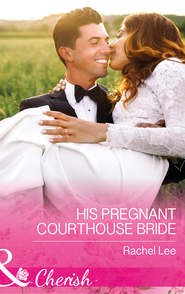По всем вопросам обращайтесь на: info@litportal.ru
(©) 2003-2025.
✖
With Malice
Автор
Год написания книги
2018
Настройки чтения
Размер шрифта
Высота строк
Поля
“Right. And never mind that cleaning out the projects would take a hell of a lot more than just busting the gang-bangers. Regardless, the mayor has spoken—and loudly.” He paused for a moment, drawing tiny circles on his desk blotter. “And you know what? In the big scheme of things, the mayor might be right. So College Hill gets as much as we can put there. Which means you’re on point with Senator Lawrence.”
What he said made sense on a lot of levels. And it was true that, in the big scheme of things, it might well be better to focus the city’s efforts at trying to bring some measure of safety and hope to the bleak lives in the projects. Abigail Reese’s murder, however ugly and awful, did not seem to be a symptom of a festering cancer in the city. The College Hill murders were, without doubt.
She nodded. “Yes, sir.”
“So what’s your caseload right now?”
“Not too bad. I have six active cases, plus the two from tonight. The state attorney says he’ll probably get pleas on four of them. The Hart case goes to trial next month. And I’m still waiting on ballistics on Vance. If they come back positive—and they will—that’ll plead out, too.”
“So you’re clear except for Lawrence.”
“And the girl in the alley,” Karen said.
“I’ll pull you off that. Previn can take it.”
Karen shifted in her seat. “I don’t think that’s a good idea, sir. Previn’s only been here three months. He’s not ready to solo.”
And the unidentified white female deserved better than to get swept aside onto a rookie homicide detective whose marriage was crumbling before his eyes. The sight of her torn body still lingered in Karen’s eyes.
Simpson studied her face for a moment. “Okay. So you keep an eye on Previn on the alley thing. But you need to keep your focus on Lawrence. You’re going to get a lot of attention. Don’t fuck up.”
“Yes, sir.”
Randall Youngblood scanned the e-mail once again. Like any prominent businessman, he’d had his share of dealings with the media. Some good, some not. Over the years, he’d made a practice of cultivating friendships with reporters whose views or stories were sympathetic. In return, he would slip them advance notice of any news from his industry. One hand washed the other.
He had known the reporter from whom he’d received this e-mail for twelve years. It wasn’t the first time the man had given him a heads-up on a story that might affect him. The story would break on that day’s television news, but the TV folks wouldn’t mention the jimmied files or their contents. The newspapers might, but probably not for a few days. The immediate coverage would focus on the senator’s lifelong relationship with his nanny. Vague possibilities of political maneuvering, or worse, would be unseemly. So he had a few days’ lead time.
He tapped the intercom button on his phone and entered a three-digit extension. “Michaels, are you busy? Well, you just got busier.”
Four minutes later, Bill Michaels strode into his office. Michaels never walked. He strode. He’d been an Olympic gymnast in college, and his smallish but solid frame still moved with a dancer’s grace. More than one opponent in a courtroom or across a negotiating table had taken the wrong first impression from that. It was not a mistake to be made twice. Bill Michaels was as savvy a legal predator as had ever hefted a briefcase.
“Grant Lawrence’s nanny was killed last night,” Randall said without preamble.
Michaels nodded. “I heard something about it on the radio news.”
“Well, you didn’t hear this part. Apparently someone broke into his office files. Including his S.R. 52 files. We had nothing to do with that.” If that was a question, it demanded only one answer.
“Of course not, sir.”
“Fine. I’ll stand by that.” Randall leaned back and propped his feet on the bottom drawer of his desk. “So…how can we take advantage of this?”
Bill considered. “We’ve got a few days before that breaks.”
“I’d think so, although with the goddamn piranhas in the media, I wouldn’t book odds on it.”
Michaels nodded. “Very well, sir. I want to refresh my memory on all circumstances surrounding Lawrence’s life and political activities. I’ll return with a report in two or three hours.”
Randall Youngblood nodded. Then he put his feet firmly on the floor and faced Michaels. “Grant Lawrence and I go way back, Michaels. Sometimes we agree, and sometimes we disagree. I don’t hate the man.”
“I understand that, sir.”
“Be sure you do.” Then he waved a hand, dismissing Michaels, and propped his feet up again. It was a damn good thing he had a piranha of his own.
Breaking the news to Belle and Catherine Suzanne proved to be absolutely, without question, one of the most painful experiences of Grant Lawrence’s life. It had been bad enough when he’d been told he might need to wear a brace or use a crutch for the rest of his life—he’d beaten that one pretty good, thank God—and it had been really tough to try to explain to a five-year-old Cathy that her mother would never come home again.
But this one was infinitely harder. In the first place, Belle was no longer a baby, so he had two pairs of horrified, disbelieving, stunned blue eyes looking back at him, innocent blue eyes that were unable to fully grasp one of the world’s greatest evils: death.
And there was his own emotional devastation. Grant had loved Abby in a way he had loved no one else. It hurt to speak of her death, hurt to try to explain to the daughters he loved beyond life that one of their mainstays was gone forever. It hurt like hell.
But he got the words out, forced them past a throat so thick and tight that each one was squeezed. He managed to remind them that when people died they went to live with God and the angels, and that even now Abby was looking down on them and watching over them, even though they would no longer see her.
Belle, in all seriousness, wanted to know what angel song Abby was probably learning right now. For several moments, Grant couldn’t even speak. He bit his lip hard and closed his eyes against a tidal wave of anguish and loss. What song would an angel sing?
All he could think of was a section of the liturgy of the Catholic Mass.
“Well,” he said, clearing his throat and trying to smile at Belle, “I imagine the first song she’s learning is Glory to God in the highest, and peace to his people on earth….”
“But, Daddy, we sing that in church.”
“I know, sweetie. I think the angels taught us, too. But Abby went to a different church. I don’t think she knows that song, so they’re probably teaching it to her. I mean, she already knows so many hymns that they’d hardly teach her one she knows.”
Belle nodded, satisfied. “I’ll sing it, too. Abby will sing it with me.”
Grant’s heart fractured along a fresh fault line, but he held the ache inside. “Abby would like that.” Then he looked at Cathy Suzanne, who had so far not said a word. She looked back solemnly at him, her gaze conveying a wider understanding of death than Belle’s. But of course. She was older, and she still remembered her deceased mother.
Finally Cathy spoke. “She was getting old, Daddy.”
“Yes.” He didn’t want her to know yet that age hadn’t been the demon.
“She told me once that she might die before too long because she was getting old. She said she’d be sorry to leave us, but she was beginning to ache for her home in heaven.”
“She did?”
Cathy nodded, still solemn, and turned away. “I know Abby didn’t believe in our church,” she said quietly, “but I think I’ll say a rosary anyway.”
“Me too,” said Belle, racing to get her rosary beads.
Once her sister had left the room, Cathy looked into her father’s eyes. “Daddy? It’s okay to cry.”
And as soon as he was alone, that was exactly what he did.
Jerry arrived about one-thirty. On any other day, Grant might have noticed just how worn, jumpy and unhappy Jerry looked. On any other day he might have been concerned for his old friend. Today they were both pole-axed, and there didn’t seem much unusual about Jerry’s state.
He took his aide out into the gardens. Grant’s parents lived far more opulently than he did, and it was possible to get lost on their estate, built long ago when Florida land was cheap and the snowbirds hadn’t begun to arrive in large numbers. The days when the Don CeSar hotel had been the place for Hollywood types to vacation. In the gardens of the elder Lawrences, it was possible to disappear.
Which was exactly what he did with Jerry. He guided him to the farthest reaches of the gardens, to a place where there was a nook with a stone bench beneath a trellis covered in roses.
“Okay,” Grant said when they were sitting side-by-side, a gentle onshore breeze reaching them. “What did you get me into?”











